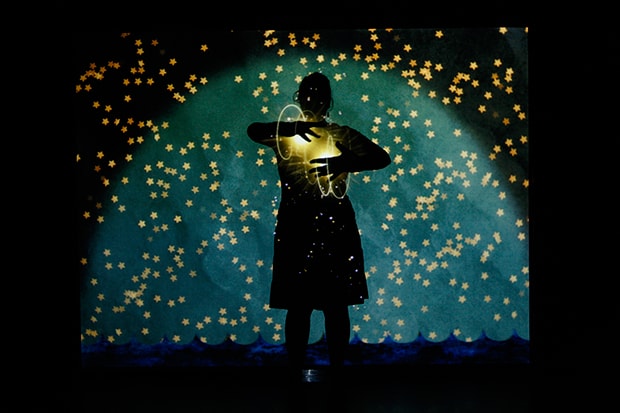When it became apparent that Obama would move forward with Kagan’s nomination, many parties protested. They questioned not only Kagan’s diversity record but the dearth of black women considered for the nomination.
And black women made some noise. Following in the footsteps of vocal black women’s movements and organizations like the National Black Feminist Organization, on May 9, 2010, 28 women from the Black Women’s Roundtable network of the National Coalition on Black Civic Participation (NCBCP) sent President Obama a letter, stating their unease regarding Kagan’s possible nomination. In the letter, they reminded the President of the important role African-American women played in the 2008 election and stated their concern over Kagan’s “…lack of a clearly identifiable record on the protection of our nation’s civil rights laws.” 1 The letter continues:
Especially disconcerting is the perceived lack of real consideration of any of the extremely qualified African-American women as potential nominees. While we were very pleased to witness the placement of the Honorable Leah Ward Sears and Judge Ann Claire Williams on the reported lists of potential nominees, there did not appear to be any serious consideration of their candidacy, once again … Mr. President, the nominations and appointments you make today will be far-reaching, particularly for the Supreme Court. As we continue to promote the legacy of our late founding leader and Co-Convener, Dr. Dorothy I. Height, we will always seek to highlight the concerns of Black women, our families and our communities. Thus, as Dr. Height stated in our previous meeting with your Administration, we believe it is time for African American women to be represented in all sectors of government—including the Supreme Court of the United States, which in its 221 year history has not had a Black woman nominated to serve on our highest court in the land. 2
The letter mentioned Justice Stevens’ emphasis on the protection of civil rights, saying he should be replaced with someone who holds similar views. The letter was signed by Melanie Campbell (CEO of the NCBCP and convener of the Black Women’s Roundtable, “an intergenerational civic engagement network” 3) and 27 others. The letter came too late. And the President didn’t listen. The very next day he announced Elena Kagan as his nomination, a move that further distanced him from the support of black women’s organizations and civil rights groups.
Just two days later, upset NAACP leaders and other legal groups met with Senior Advisor Valerie Jarrett to voice their concern about Kagan’s nomination. After the meeting, the Reverend Al Sharpton said Jarrett described how civil rights groups could be involved in supporting future solicitor general and district and appellate judge nominees. 4 Considering how infrequently Supreme Court nominations occur, the weak response from the Administration was too little, too late. On his blog, even CNN political analyst Roland Martin linked the lack of serious consideration of a black female candidate and the role black women voters played in Obama’s election to the discontent expressed at Kagan’s nomination. He pointed to the lack of prominent African-Americans at Kagan’s nomination unveiling (only Harvard professor Charles Ogletree, who taught the Obamas and worked with Kagan, and Wade Henderson, Leadership Conference on Civil and Human Rights President were present) and the “lukewarm” press statements on the nomination announcement from the NAACP Legal Defense and Education Fund and the National Urban League as further evidence of African-Americans’ general frustration with the Obama administration’s refusal to address race. 5
And that frustration exists for good reason. There were a number of qualified African-American women for President Obama to consider for nomination, in addition to the two who made the list of potential nominees, former Georgia Chief Justice Leah Ward Sears, and Judge Ann Claire Williams, the first African-American judge in the 7th Circuit Court of Appeals, nominated by Ronald Reagan. Sonia Nelson, founder and chair of the board of iask, Inc (I Am My Sister’s Keeper, an organization dedicated to supporting and encouraging professional black women) provided a short list of a few women she thought should make the list:
…Marian Wright Edelman, longtime President of the Children’s Defense Fund and the first black woman admitted to practice in the state of Mississippi in the 1960s; Judge Janice Rogers Brown, who sits on the U.S. Court of Appeals, D.C. Circuit, and who Obama supported while he was a Senator; Harvard Law professor Lani Guinier, who, despite the controversy when she was nominated by President Bill Clinton to be an assistant U.S. attorney general, is an excellent legal scholar; and Elaine R. Jones, formerly of the NAACP Legal Defense Fund, who has three decades of experience as a litigator and civil rights activist. 6
It is no wonder then that black women are frustrated with the President—especially so since Kagan’s nomination and tapping fell between two egregious instances of Obama neglecting to defend prominent black women: Desiree Rogers’ resignation after the White House party crashers fiasco and the firing of Shirley Sherrod, USDA’s Director of Rural Development for Georgia.
Desiree Rogers
An original “Obama woman,” appointed as White House Social Secretary in November 2008, Desiree Rogers is a New Orleans native, Harvard graduate, and a personal friend of Michelle Obama. Rogers successfully promoted what she called the “Obama brand” 7 for a year, making the White House seem like a fun, welcoming place by planning events like an Easter Egg Roll on the White House lawn, inviting local children to trick-or-treat at the White House, and hosting dinners with dance floors and music provided by bands like Earth, Wind, and Fire. She drew criticism for her expensive fashion choices, as well as for attending events like New York Fashion Week, but it was uninvited guests at a White House dinner that resulted in a media fiasco ending with Rogers’ resignation.
On November 24, 2009, the Obamas held their first state dinner in honor of Indian Prime Minister Manmohan Singh and his wife, Gursharan Kaur. During the event, Virginia socialite couple Tareq and Michaele Salahi slipped past security, even though their names appeared on no guest lists. The couple joined the party, posing for photos with Vice President Joe Biden, and even shaking the President’s hand. The security breach led to a Secret Service investigation and heavy criticism of Rogers. According to The New York Times, in planning the party Rogers consulted and followed records from two of Laura Bush’s dinners, stationing someone at the East Portico of the White House to ensure guests were on the Secret Service list; at this dinner, however, no one was placed at an outer checkpoint as had been done in the past. 8
Despite the ensuing investigation, it appeared at first that the administration was standing fully behind Rogers. During a White House briefing, Robert Gibbs, Obama’s Press Secretary, in response to a question regarding Rogers’ planning, said, “The first family is quite pleased with her performance.” 9 When Rogers’ resignation was announced at the end of February, barely two months later, she publicly asserted that she felt her work in creating a “people’s house” was complete, that it seemed like a good time to examine her prospects in the corporate world and that “the incident at the State Dinner was not a deciding factor … but it did show me a side of the job and of Washington that I had not seen before.” 10
News of her resignation began leaking before she planned to make it known, 11 and the speed in which her replacement, Julianna Smoot, was announced suggests that her departure was not solely of her own volition (Rogers’ resignation was announced on February 26, and Smoot was confirmed as her replacement later the same day).
Writing for The New York Times, Peter Baker said that trouble for Rogers began before the Salahis crashed the White House dinner. She met with Senior Advisor David Axelrod after her May 2009 appearance in WSJ Magazine. Axelrod reprimanded her both for referring to the President as a brand and for her lavish dress and jewelry in the spread during an economic recession. Baker wrote, “her profile was deliberately lowered.” 12 After the White House security breach and the following public scrutiny of Rogers, she felt that no one in the White House did much to defend her or correct the record, said Baker, quoting unnamed sources. He continued:
After the Salahi incident, these associates said Ms. Rogers was barred by the White House from testifying before Congress or giving interviews or even answering written questions. She was told she could not attend the Kennedy Center Honors, a major annual Washington event. And even her decision to finally resign leaked before she could secure a new job. 13
Considering her success in planning White House activities—in 2009, she organized 309 events, while there were only 231 events during Bush’s final year 14—and the personal friendship she had with the Obamas, the lack of defense from the President and Mrs. Obama was both surprising and disappointing. Yet upon comparing the Desiree Rogers incident with Obama’s overall record on African-American women within his administration, and race in general, the surprise is diminished. In fact, the reaction just seems standard.
- Hazel Trice Edney, “Despite Widespread Appeals, Obama Fails to Nominate Black Woman to Supreme Court,” TheSkanner.com, 10 May 2010.[↑]
- Edney.[↑]
- The National Coalition on Black Civic Participation, “Who We Are,” 2010.[↑]
- Krissah Thompson and Hamil R. Harris, “White House Seeks to Defend Kagan’s Diversity Record,” The Washington Post, 12 May 2010.[↑]
- Roland Martin, “The Delicate Dance Between Obama and Black Leaders,” RolandSMatin.com, 14 May 2010.[↑]
- Sophia Nelson, “A Supreme Snub by Obama,” The Root, 12 May 2010.[↑]
- Amy Chozick, “Desiree Rogers’ Brand Obama,” The Wall Street Journal Magazine Online, May 2009.[↑]
- Peter Baker, “Obama Social Secretary Ran Into Sharp Elbows,” The New York Times, 11 March 2010.[↑]
- Sheryl Gay Stolberg and Janie Lorber, “White House Blocks Testimony on Party Crashers,” The New York Times, 2 December 2009.[↑]
- Lynn Sweet, “White House Social Secretary Desiree Rogers to Step Down,” Chicago Sun-Times, 26 February 2010.[↑]
- Jodi Kantor, “White House Social Secretary Resigns,” The New York Times, 26 February 2010.[↑]
- Baker, 2.[↑]
- Baker, 1.[↑]
- Baker, 2.[↑]



